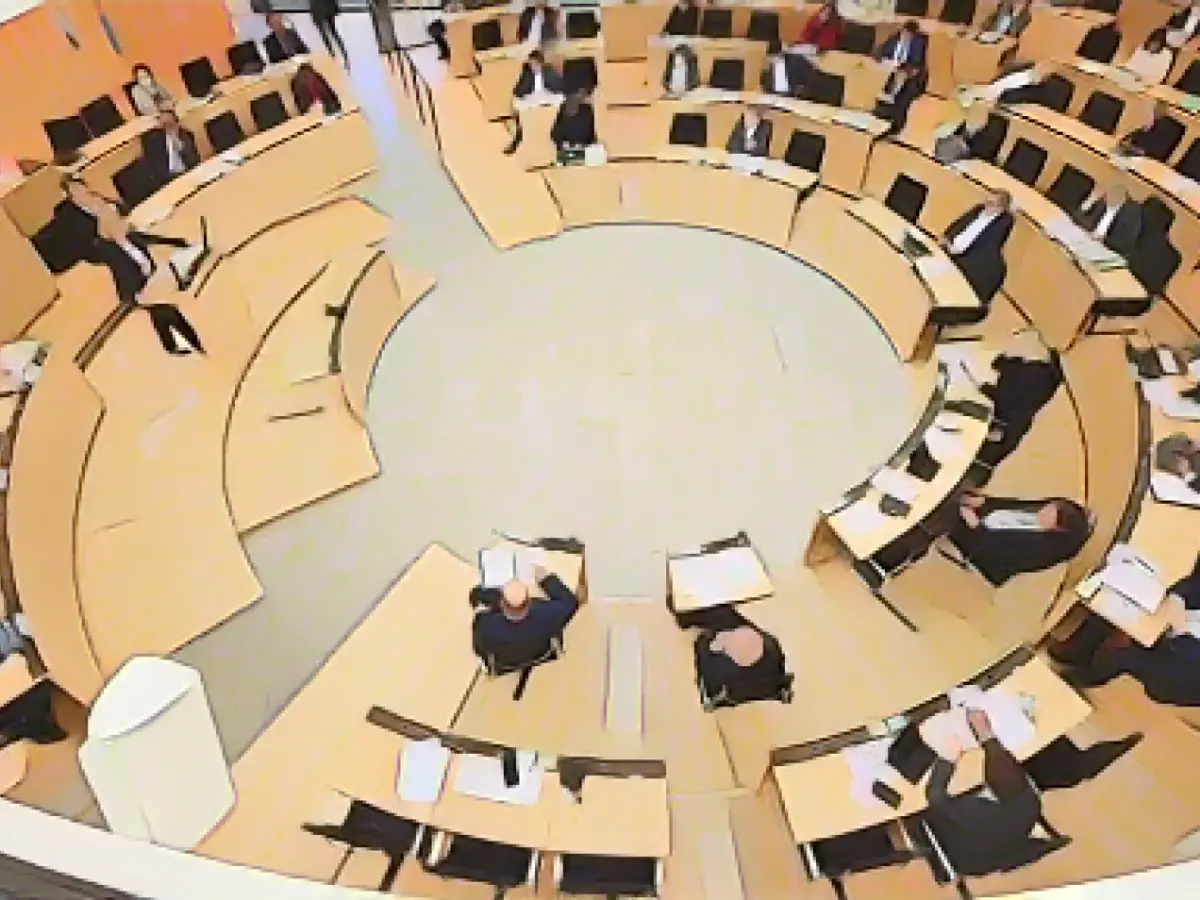Politics: Addressing Extremism Surveillance in Hessian Parliament
In its final plenary session this year, the Hessian state parliament is set to convene and discuss the surveillance of suspected extremists. On Tuesday at 11 a.m., the parliament will deliberate on an amendment to the law, with the "G10 Commission" playing a significant role in these discussions. This commission, responsible for certain surveillance measures by the Office for the Protection of the Constitution, operates behind closed doors.
The proposed amendment seeks to elect commission members personally, rather than through electoral arithmetic keys and party affiliation. Consequently, the AfD, which saw a significant rise in support during Hessian state elections in October, may not automatically have a representative on the "G10 Commission" in the future. The AfD criticizes this plan as undemocratic, suggesting the amendment aims to exclude them from the committee due to their political standing.
After the plenary debate, the state parliament's Committee on Internal Affairs will evaluate the riots at the Bundesliga soccer match between Eintracht Frankfurt and VfB Stuttgart on 25 November, which resulted in over 200 injuries. Following this, the Budget Committee will discuss the future of Pulkovo Airport in St. Petersburg, as Russian President Vladimir Putin has mandated a new operator structure for the airport, forcing German shareholder Fraport to withdraw from the venture.
Additional Insights:
The G10 Commission is a parliamentary control body overseeing the activities of the Federal Office for the Protection of the Constitution (BfV). This office is responsible for monitoring extremist activities within Germany. The BfV has increasingly scrutinized the Alternative for Germany (AfD), resulting in the placement of the party under systematic surveillance.
This surveillance program has faced legal challenges, with a halt by a German court in March 2021. However, in March 2022, the Administrative Court of Cologne reinstated the surveillance, citing evidence of the AfD's advocacy of an anti-constitutional ethnic concept. The AfD has condemned this decision as politically motivated and vowed to appeal it.
In summary, the Hessian state parliament is set to debate the surveillance of suspected extremists, potentially affecting the representation of parties like the AfD in the G10 Commission. While criticism from the AfD exists, legal challenges to the BfV's surveillance of the party add further complexity to this issue.








